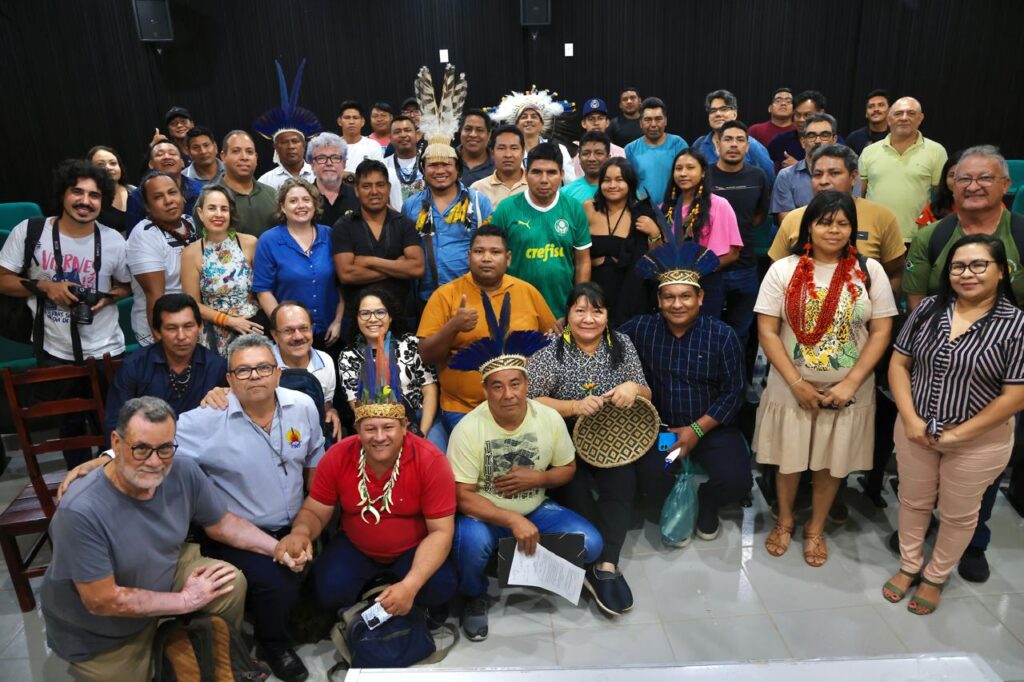Funai dialogues with indigenous leaders and partners in Cuiabá
Joenia Wapichana and her team welcomed the needs of indigenous peoples in Mato Grosso and presented new actions in the scenario of reconstruction of the indigenist body
AI generated audio
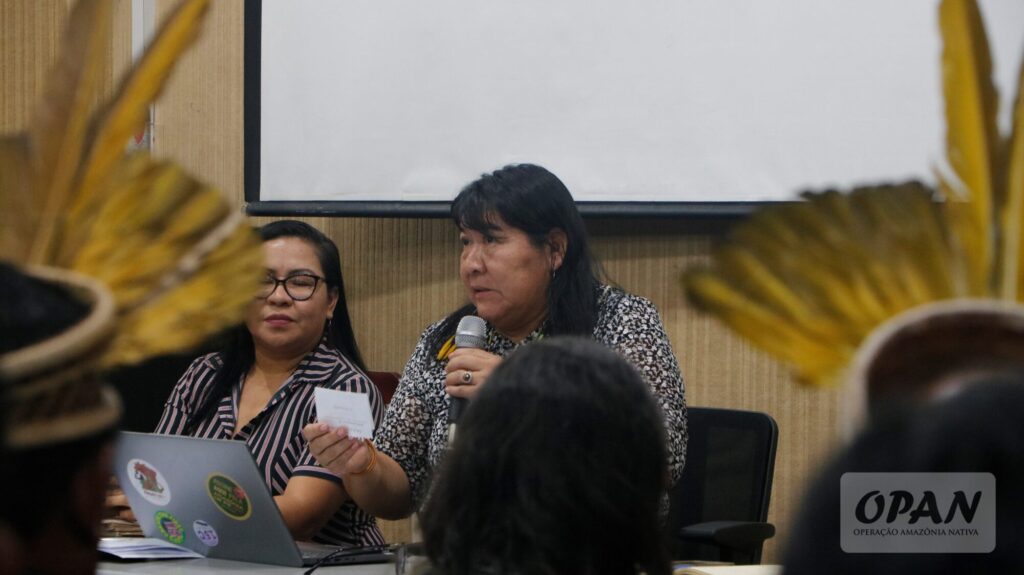
By Túlio Paniago and Dafne Spolti/Opan
The new National Foundation for Indigenous Peoples (Funai), under the presidency of Joenia Wapichana, has a differential that can be an example for any and all public bodies: a frank dialogue with those who are under the scope of their actions.
On the afternoon of last Friday (14), in the auditorium of the Masseiro Okamura State Park, in Cuiabá (MT), the indigenist agency promoted a meeting with indigenous leaders and partners. Without rodeos, President Joenia Wapichana marked the rhythm of the speeches to listen to the greatest number of people, accepted the issues presented and explained the functioning and situation of Funai.
“It is the smallest budget by the government, but we have responsibilities over 13.8% of Brazilian lands and about 1.7 million indigenous people representing an incredible diversity. The challenge is huge, but we are committed to the work”, highlighted Joenia.
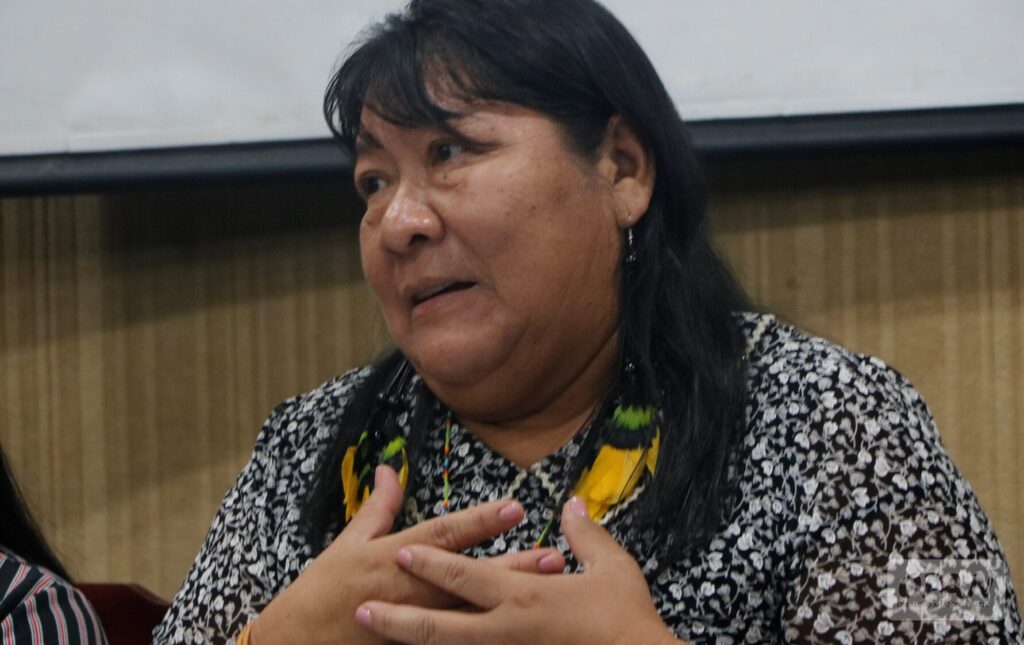
The leaders of the Balatipone-Umutina, Kayapó, Guató, Arara, Bakairi and Bororo peoples, and invited partners, highlighted the need for actions such as the demarcation of land, the fight against invasions in their territories, the improvement in the quality of Health care, the strengthening of economic activities, the inspection of irregularities in works close to the territories and a more effective presence of the local technical coordinations (CTLs) and regional coordinations (CRS) of Funai.
In addition to committing to the resolution and forwarding of the guidelines raised, explaining the limits of the Foundation in some cases, Joenia announced that they are advancing in the physical demarcation of indigenous lands: 60 across the country, six of them in Mato Grosso.
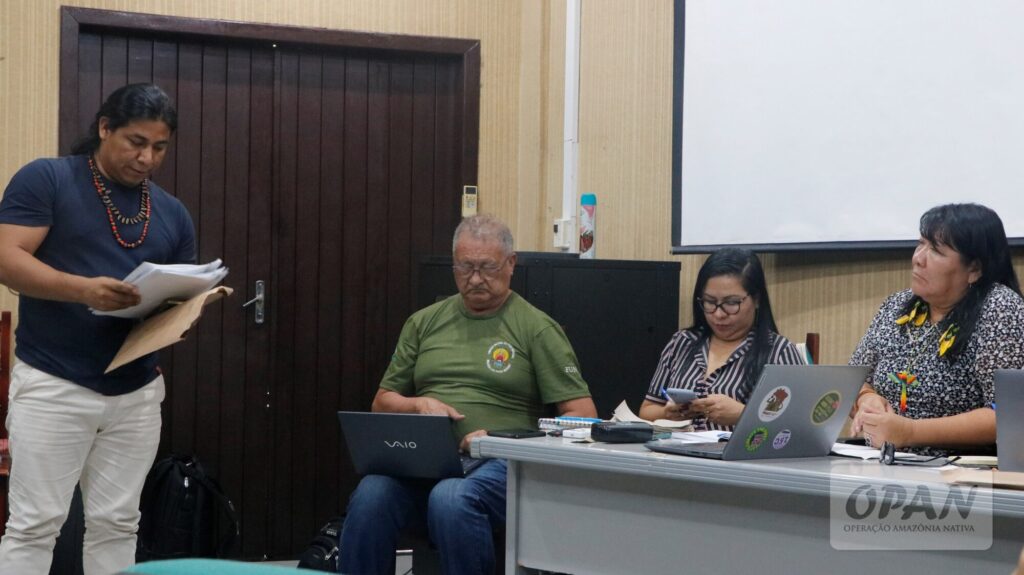
The present team, which included the CR Cuiabá and the Administration and Management, Promotion and Sustainable Development and Territorial Protection Directorates, gave details of the current FUNAI conjuncture, which is still in the process of strengthening after years of dismantling accentuated in the government of Jair Bolsonaro, when not There was no delimitation or approval of indigenous land, an unprecedented fact in the last 50 years in the country. The reduced amount of personnel (1200 servers throughout Brazil) was also highlighted in the face of the various attributions of the municipality, in addition to the lack of financial resources.
Regarding the personnel deficit, actions were presented with the objective of solving the issue, such as the adhesion to the Unified National Public Tender (CPNU) that guarantees 30% of Funai’s vacancies for indigenous candidates. The result was announced this month and the expectation is to receive 502 new servers by April, who will occupy practically the same number of vacancies left by professionals in the process of retirement at the Foundation.
Joenia and her team also highlighted important actions that symbolize the reconstruction of Funai. The approval of 13 indigenous lands since the beginning of its management is an important achievement, as well as the repeal of normative instructions 01 and 12 created during the previous government for the release of enterprises and regulation of the exploitation of wood in indigenous lands.
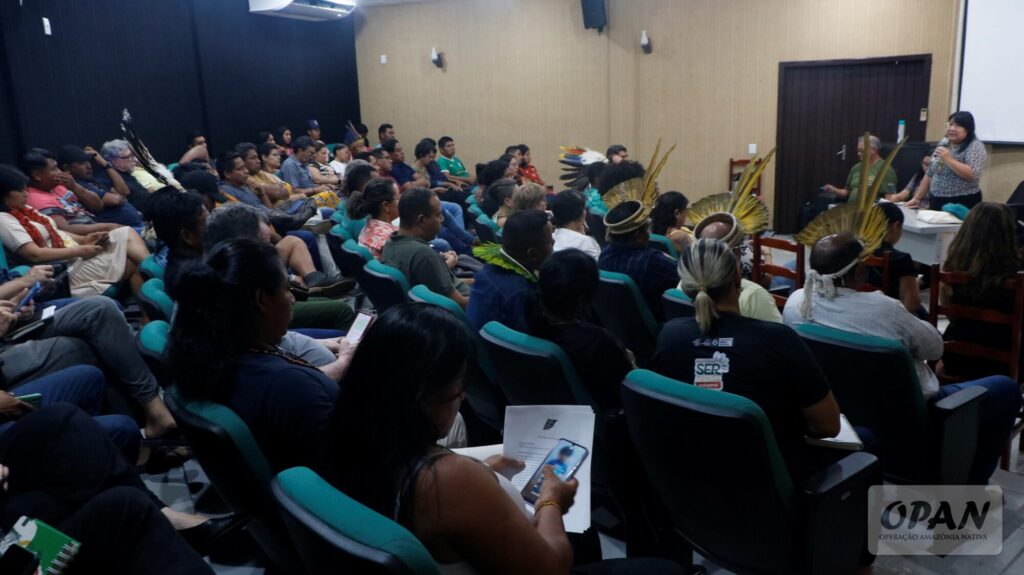
FUNAI Police Power
The meeting between local civil servants and the senior management of Funai also served to answer questions about the police power of the agency, regulated by Decree 12,373/2025, but which has been provided for since 1967 in the law that created the autarchy (Law 5,371/1967), but never got off the ground. The substitute director for Territorial Protection, Rosane Silva, explained that Funai is working on normative instructions that will define the action to implement the administrative activity.
It was also pointed out that the police power aims to guarantee the security of civil servants, indigenous peoples and other actors, therefore it has the prerogative to limit or discipline the exercise of individual rights in favor of public interest, but is not to be confused with the exclusive attributions of security agencies.
“We need this police power. We are on the sixth Indigenous Land to do de-intrusion. The first was in the Yanomami, which is continuous. We are also in Arariboia and Kayapó. The server is not allowed to buy or collect the bulletproof vest. It is a real need that will make it possible to take many measures”, evaluates Joenia.
Other agendas in Mato Grosso
In addition to the meeting, Joenia also visited the Funai CR building in Cuiabá, which is undergoing a process of renovation and revitalization. The visits to the CRS have been a practice adopted since the beginning of the administration to know the work carried out and the internal context experienced by the servers.
Mato Grosso has six CRS working with more than 42,000 indigenous people from 43 peoples and in isolated indigenous territories. Cuiabá, who was present at the meeting, works with the peoples Guató, Bakairi, Kayapó, Paresi, Chiquitano, Bororo, Negarotê, Nambikwara, Balaiponé-Umutina, Wasusu, Halotesu, Terena and Aikanã.
On Thursday (13), in Campo Novo do Parecis, Joenia signed two ordinances that allow the Paresi, Nambikwara and Manoki peoples to use as a guarantee the pledge of the crop with the banks, financial institutions, input companies and equipment. As a result, indigenous cooperatives will be able to obtain agricultural inputs, machinery and financing to implement their agricultural activities.
The meeting in Cuiabá was attended by several organizations and entities, such as the Federation of Indigenous Peoples and Organizations of Mato Grosso (Fepoimt), the District Council for Indigenous Health (Condisi), State Public Defender’s Office (DPE), the Federal Public Defender’s Office (DPU), Human Rights Forum and the Land of Mato Grosso (FDHT), Indigenist Missionary Council (CIMI) and Operation Native Amazon (OPAN).
“It was an important initiative for the FUNAI presidency to have come with its team for a broad communication with governmental and non-governmental bodies and indigenous organizations present”, evaluates Ivar Busatto, general coordinator of Opan.
